
Hardwood floors are solid!
Nowadays, there are so many options for hardwood floors. Luckily, these options make it possible to install wood flooring in places where it used to be out of the question. Whether you are considering a basement installation, on concrete slabs, or floating floors, wood flooring can now be used for all these applications. Despite the many new possibilities that are now available thanks to the innovations of the past 30 years, the traditional hardwood floor remains a product of choice that works well with most situations.
Edge of a hardwood 3/4" floorboard.
Its main attraction is undoubtedly its authenticity and the proximity of its origins: The tree. Hardwood floorboards are comprised of a single piece of 3/4" thick hardwood. Apart from the thin coats of finish applied to its surface to preserve the look, only one other ingredient makes up this flooring: 100% hardwood! There are no adhesives or other manmade compounds. Hardwood floors can proudly claim their 100% natural, organic, and renewable attributes.
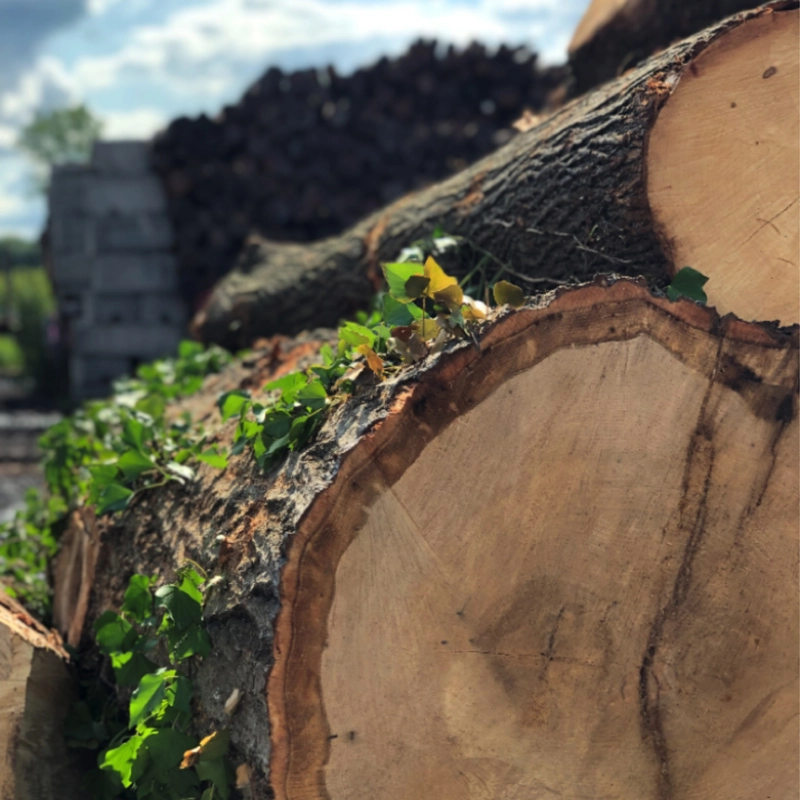
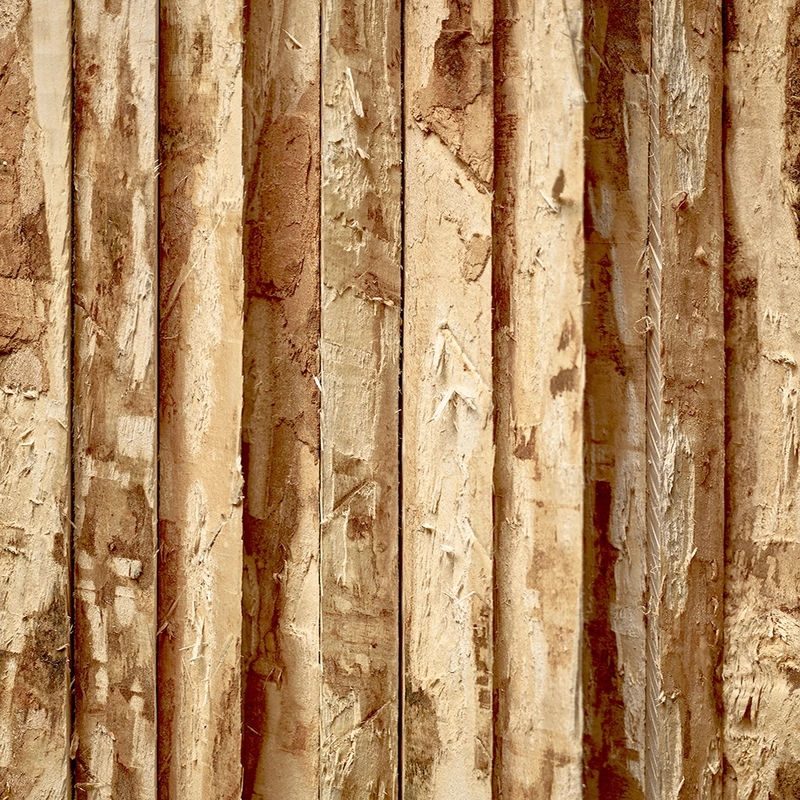
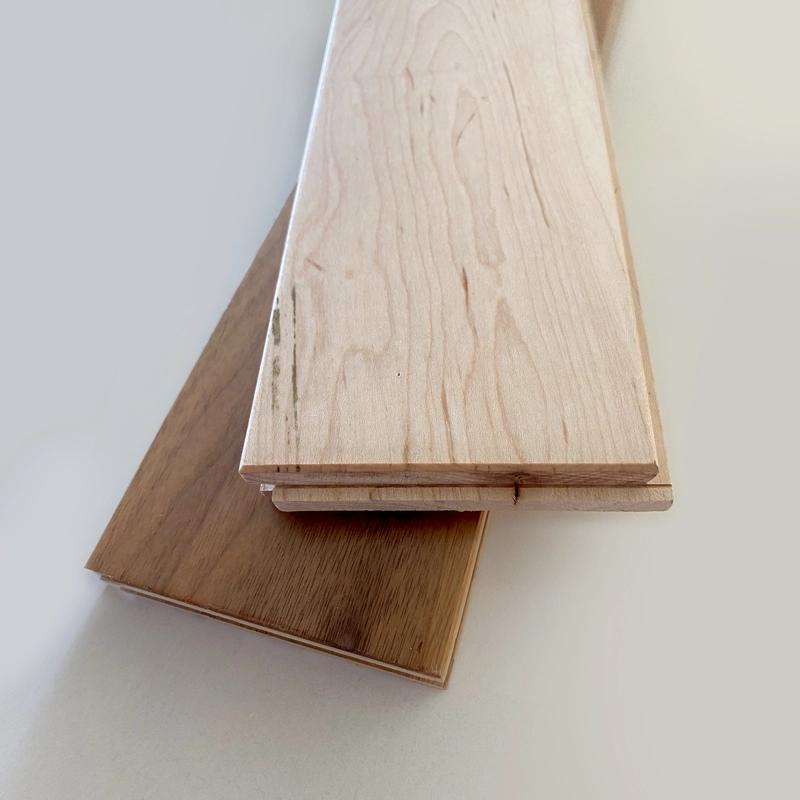
From the tree to the final product.
A floor for life
The simplicity of its manufacturing is also part of its long durability. There is no risk that the surface coat may separate since it is one whole piece: 19 mm of solid wood “through and through”! It is said, in fact, that a hardwood floor will last for a lifetime and more. You can sand it many times, restore it and even change its color. Hardwood floors are probably at the top of the list of environmentally friendly and durable floor coverings. Many hardwood floors that are over one-hundred years old have preserved their character over time!
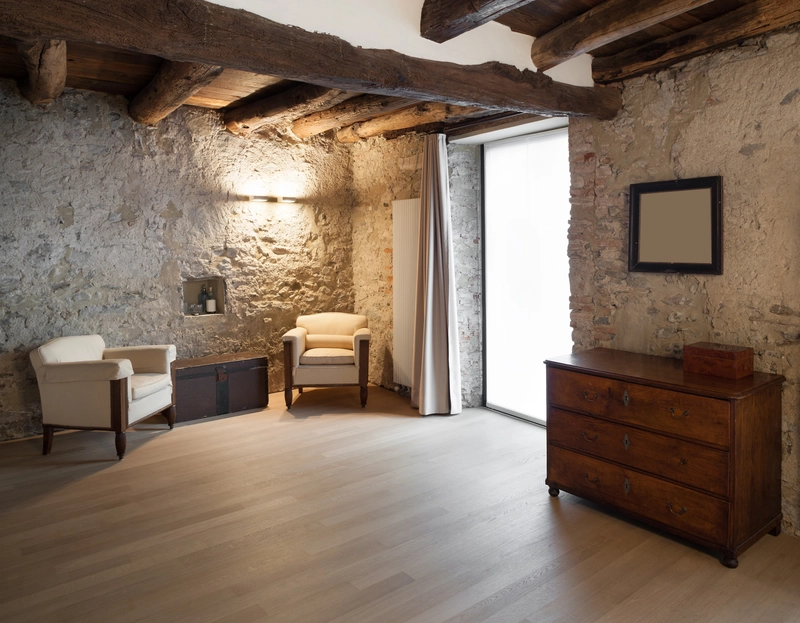
White Ash Gleam
And what about humidity?
Solid hardwood floors are said to be less stable to the variations in humidity than engineered wood floorings, they are said to retract in the winter and expand in the summer. But what’s the deal, really? While this may be true, this should not be a deal breaker when it comes to choosing it for an interior floor covering. Wood is a material that reacts to its environment. This is also true for engineered floorboards that are made, you guessed it, of wood! Since expansion and retraction of wood is a percentage of its dimensions, hardwood floorboards of 4 ¼" width and less will adapt very well, as they are dimensionally more stable and the gain obtained by the engineered floor, in this case, will be minimized. Although wood changes to adapt to environmental conditions, let’s remember that it always regains its balance. With our modern indoor systems to control the temperature and humidity, it is easy to maintain an environment with optimal conditions between 35 and 55% humidity and about 20 °C, i.e., the same conditions as those recommended to maintain human health! You don’t have an indoor control system? Don’t worry, even if some small spaces form between the floorboards in the winter, they will close once spring arrives!
Often imitated, but never equaled!
One can only marvel at the fact that each board in a solid wood floor is unique! All the authenticity of the wood takes on its full meaning when you consider that each board has its own pattern, density, shade, and color, and this without ever repeating them. This aspect is particularly true when you compare it, for example, to vinyl or laminated flooring that have a printed surface that imitates wood.
Let’s talk about pricing...
Solid wood flooring is particularly appropriate for an installation on wood framing (beams and joists) with boards that are 4 ¼" wide or less and of North American species. Installing a solid wood floor is very affordable when it is done on a subfloor comprised of plywood sheets or of oriented strand boards (OSB) as it can simply be stapled or nailed. Nailed or stapled installations required by solid wood floors are simpler and more affordable than a glued installation which often calls for the services of a professional. If an incident occurs over the years, it is easy to replace a damaged board, even if it is in the center of the room!
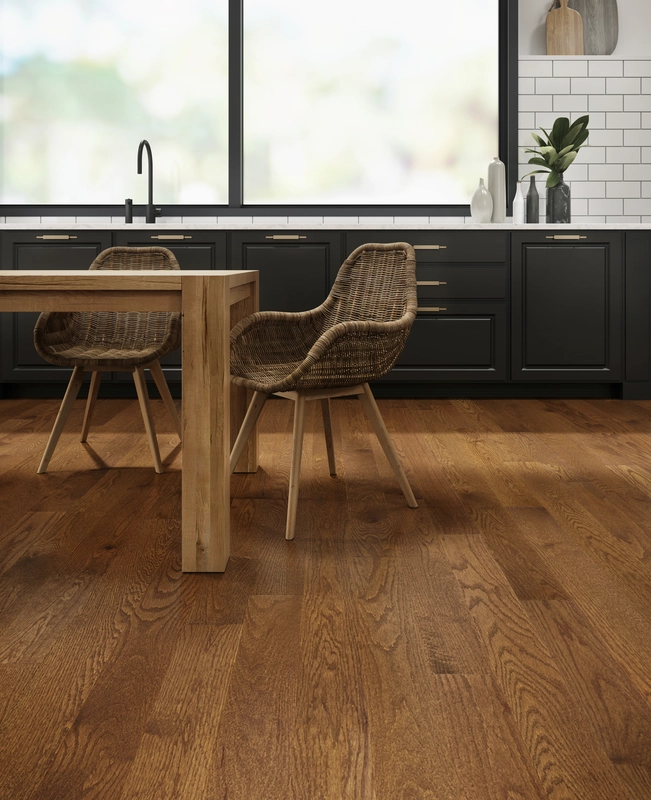
Red Oak 4 1/4" hardwood floor
Choosing a hardwood floor is selecting an environmentally friendly, renewable product with known and identifiable components. Hardwood floors made from North American species are rigorously traceable and give you’re the assurance that you have chosen a product from well-managed forests and that is adapted to our changing climates.


